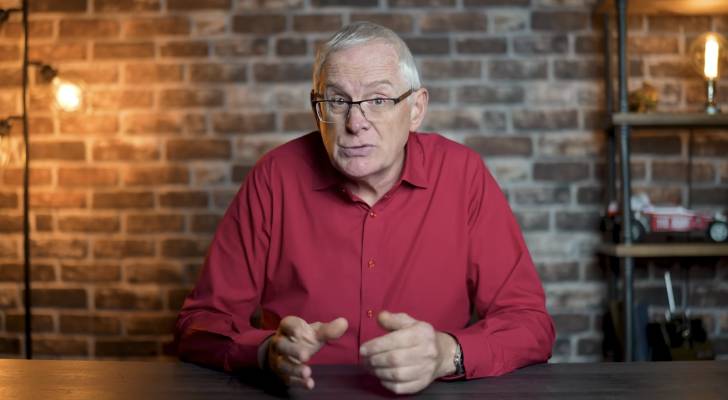A single high school class can boost a teen’s lifetime wealth by $100,000 — but most kids aren’t taking it. Here’s what they’re missing
We adhere to strict standards of editorial integrity to help you make decisions with confidence. Some or all links contained within this article are paid links. While plenty of studies show the link between financial knowledge and financial success, a recent report puts a price tag on it: $100,000. A study from consulting firm Tyton […]
‘Trump is steering our economy toward disaster’: Experts warn of stagflation, trade wars and a gutted SSA. Here are a few money moves you can make right now to protect your retirement
We adhere to strict standards of editorial integrity to help you make decisions with confidence. Some or all links contained within this article are paid links. With talk of trade wars, fear of stagflation and slashes to Social Security staffing, you might be justifiably concerned about your retirement savings — especially if you’re one of […]
Can’t get rich in America with just your 9-to-5? Here are 5 simple steps to start building real wealth in 2025


We adhere to strict standards of editorial integrity to help you make decisions with confidence. Some or all links contained within this article are paid links. Many dream of financial freedom but feel trapped in their 9-to-5 grind. The good news? It’s possible to build wealth and secure your future — even on a modest […]
How much is the average Social Security check of a middle-class retiree?


We adhere to strict standards of editorial integrity to help you make decisions with confidence. Some or all links contained within this article are paid links. Social Security is an important piece of the retirement puzzle, particularly for middle-class retirees who count on the safety net to supplement their post-career income. But if you see […]
‘What we’re doing is very big’: Trump says he won’t rule out a recession — here are 3 simple strategies to help keep your finances safe in a downturn


We adhere to strict standards of editorial integrity to help you make decisions with confidence. Some or all links contained within this article are paid links. Sometimes what leaders don’t say speaks the loudest. So, when U.S. President Donald Trump refused to rule out a recession amid a wave of price-increasing tariffs and stubborn inflation, […]
US Treasury Secretary Scott Bessent claims American economy has become ‘hooked’ and ‘addicted’ to excess government spending — warns of ‘detox period.’ 3 ways to shockproof your portfolio


We adhere to strict standards of editorial integrity to help you make decisions with confidence. Some or all links contained within this article are paid links. For much of last year, President Donald Trump promised “extraordinary” economic benefits from his policies and “the brightest economic future the world has ever seen” for the country. But […]
Warren Buffett used to think that ‘predicting’ the stock market was the most important thing in investing — until 1 book changed his life forever. Here’s the real key to long-term gains


We adhere to strict standards of editorial integrity to help you make decisions with confidence. Some or all links contained within this article are paid links. Warren Buffett is one of the most renowned investors of our time. So, it’s easy to forget that he was once a beginner too. Buffett claims he bought his […]
‘I learned the hard way’: Dave Bautista said his house was foreclosed on and he ‘lost everything’ after leaving WWE — but got the ‘best’ money advice from ‘The Undertaker’


We adhere to strict standards of editorial integrity to help you make decisions with confidence. Some or all links contained within this article are paid links. Dave Bautista is among the few professional wrestlers who successfully transitioned to a career in Hollywood. Millions of fans followed his journey from the ring to the silver screen, […]
Jalen Hurts lives in a $2,000/month rental apartment in New Jersey despite $255 million contract — here’s why and what you can learn from the Super Bowl MVP


We adhere to strict standards of editorial integrity to help you make decisions with confidence. Some or all links contained within this article are paid links. Although he hit the jackpot with a massive $255 million contract in 2023, Philadelphia Eagles quarterback Jalen Hurts still lives like a humble college student. He rents an apartment […]
36% of millionaires say it’ll ‘take a miracle’ to retire amid rising costs and a shaky market — how to get on the right track even if you don’t have $1 million in the bank


We adhere to strict standards of editorial integrity to help you make decisions with confidence. Some or all links contained within this article are paid links. If you’re planning on putting your feet up by the coast and sipping margaritas in your golden years, make sure you’ve got the funds for it. These days, even […]